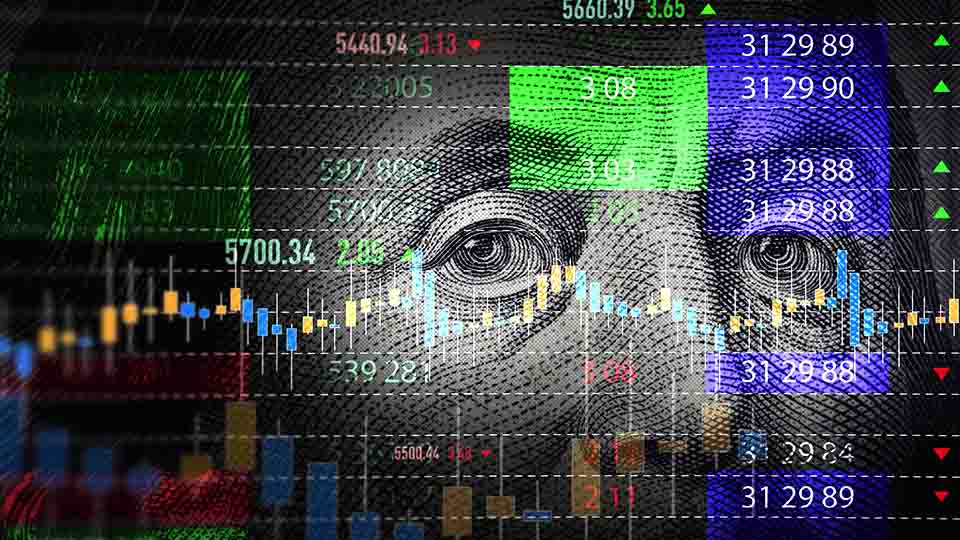What the Russia-Ukraine Crisis Means for Your Portfolio
18 February 2022
Summary
To help address investor concerns about Russia-Ukraine tensions, our Portfolio Managers examine the impact on their respective asset classes and potential allocation changes.
The threat of a Russian invasion of Ukraine is dominating news headlines. As the world watches for whether tensions will escalate or defuse, many investors may also be concerned about how their portfolios may be affected. In general, our focus is more on how to respond to potential sanctions.To help address investor questions, we pulled together insights from our Portfolio Managers about the impact on their respective asset classes and potential allocation changes.
- Active Emerging Markets Bond Strategy
- Emerging Markets Debt ETFs
- Emerging Markets Equity
- Commodities
- Gold
- Bitcoin and Cryptocurrencies
- Energy Considerations
Active Emerging Markets Bond Strategy
Eric Fine, Portfolio Manager, Emerging Markets Bond Strategy: We believe sanctions initially will focus on Russia’s top security personnel and companies directly involved in potential war efforts, which would provide relief to the market. Sanctions on systemically important financial institutions—either through exclusion from the SWIFT payments system or directly—would be a harsher response and may have a significant market impact. This would make it illegal to own affected securities, or at least make it unclear whether affected securities can be owned. How the Russian economy can adjust would be a financial sector risk. Sanctions on secondary market trading of Russian securities would potentially hit markets severely, with sellers overwhelming buyers.
Our Emerging Markets Bond Strategy holds no Russian bonds, whether local-currency or USD, and will continue to avoid them as the downside outweighs any potential upside given the sanctions risk. Ukrainian bond prices may see a dramatic hit initially, we believe Ukrainian bonds should recover. Ukraine appears set to receive a U.S. commitment of an additional $1B in financial support and may gain accommodative terms from the International Monetary Fund, which will help boost the credit quality of Ukrainian bonds. If we expected an invasion, we would likely reduce or close our Ukraine exposure.
Emerging Markets Debt ETFs
Fran Rodilosso, CFA, Head of Fixed Income ETF Portfolio Management: The two primary risks we see are sanction risk—which may have major implications for liquidity—for Russian bonds and price risk for Ukrainian bonds. Sanctions may very well take a different form than they did in 2014, when the implications for foreign investors were minimized. Those sanctions, similar to recent announcements, focused on the primary debt market and entities associated with key individuals who themselves made the sanctions list.
The next round of sanctions may be stronger, but we believe they will focus on the same targets: sovereign, state owned entities (especially banks), strategic industries and individuals. Any sanctions that result in the inability to transact in Russia related bonds will lead to the removal of those bonds, or the country, from emerging market debt indices.
Our emerging markets debt ETFs are passively managed, so allocation shifts will be in response to any changes made by the indexers. That said, we have tended to be defensive at the margin in order to manage liquidity should an escalation of sanctions negatively impact liquidity of bonds issued by Russian entities. We are more sensitive in this regard to bonds issued by the sovereign, sovereign owned entities, and issuers in strategically important sectors.
Emerging Markets Equity
David Semple, Portfolio Manager, Emerging Markets Equity Strategy: The impact of sanctions imposed on top personnel, directly involved companies and financial institutions on emerging markets equity will be similar to what was outlined above for emerging markets debt. While banks have indicated that they have a back-up plan in place in the event they are excluded from SWIFT, the uncertainty may mean a greater initial impact. While secondary market sanctions are more likely to impact debt securities than equities, we certainly can’t rule out equity holdings, which may lead to potential forced selling.
Our Emerging Markets Equity Strategy has some Russian exposure and there are scenarios that may negatively impact them, but they are not my base case. While not immune, in general Russian companies, we believe, are better insulated against these external events than in 2014. The Russian equity market is currently trading at a discount even to its own history, even in a time of elevated commodity prices. If we expected a complete invasion, we would likely reduce our Russian exposure.
Commodities
Roland Morris, Portfolio Manager and Strategist: A formal conflict would disrupt the flow of Russian oil and gas exports, and that would be bullish crude oil and European natural gas prices. Estimates are that the rise in tensions added roughly $4 to the price of Brent crude oil in February, before pulling back recently. A longer term conflict would potentially keep oil and natural gas prices higher, which we believe would flow through to all commodities.
Gold
Joe Foster, Portfolio Manager, Gold Strategy: As safe haven assets, we believe gold and gold stocks stand to gain the most from a Russian invasion of Ukraine. Such a conflict would raise risks globally as hostilities in other parts of the world may also escalate. The promised U.S. sanctions on Russia may likely drive energy prices higher, further increasing inflationary pressures.
We were already positioning our Gold Strategy for stronger gold prices that we expect to be driven by inflation and the risks to the economy and markets posed by the coming U.S. Federal Reserve rate hiking cycle. The Strategy is currently comprised of 94% gold mining stocks, 4% gold bullion and 2% cash. An escalation in Russian-Ukrainian tensions would cause us to accelerate the process of becoming fully invested in gold mining stocks, thereby potentially achieving maximum leverage to gold price gains.
Bitcoin and Cryptocurrencies
Matthew Sigel, Head of Digital Assets Research: Thinking longer term, if Russia manages to claim Ukraine and maintain control over Europe’s future energy supply without a violent NATO response, Bitcoin’s value to the Kremlin may grow as a counterbalance to the U.S. Russian President Vladimir Putin has previously noted “certain competitive advantages” in the country when it comes to mining, given the energy surplus.1 Official Russian policy for bitcoin has not yet been set.
It is worth noting that the Nasdaq 100 has had more 1 standard deviation daily moves vs. its 5-year average this year than Bitcoin, according to Bloomberg. Bitcoin’s relative volatility continues to demonstrate a long-term downtrend. $39,400 and $32,400 are the 61.8% and 76.4%, respectively, retracements of 2020’s post-election breakout from what was then fresh all-time highs. Bitcoin’s hash rate (total electricity draw) spiked to an all-time high this week, according to Blockchain.com, indicating that suppliers are gearing up for more usage.
Among smart contract platforms, a risk-off environment has previously led to Ethereum outperforming other smart contract protocols, though this relationship is somewhat tenuous.
Energy Considerations
Shawn Reynolds, Portfolio Manager, Natural Resources Equity: The world needs more gas than originally anticipated, and gas will be the “transition” fuel until renewable energy reaches materiality around the end of this decade. The question in Europe is can they—and are they willing to—survive another winter without average oil flow from Russia. Russia’s leverage may diminish if Europe decides to give preference to long-term contracts with Qatar, East Africa and the U.S. Russia needs long-term gas agreements from Europe and China to secure gas growth to 2035, and companies there are competing for global gas market share.
While we believe Russian gas will flow again, this crisis has accelerated the search for optionality. The world is watching to see if temporary relief to Europe provided by liquefied natural gas (LNG) from Asia and the U.S. will continue. A remaining wild card is the inventory refill plans of Asian buyers, which will eventually determine pricing over the next few months. Longer-term, questions remain as to how this situation will impact investment by countries such as Germany and France to alter their energy mix. On broader scale, this conflict has broader ramifications on overall European energy independence and the ongoing politicization of the Nord Stream 2 offshore natural gas pipelines project.
1The Street, “Vladimir Putin, Russia Boasts Competitive Advantages in Bitcoin Mining," 26/01/2022.
Important Disclosure
This is a marketing communication. Please refer to the prospectus of the UCITS and to the KID before making any final investment decisions.
This information originates from VanEck (Europe) GmbH, which has been appointed as distributor of VanEck products in Europe by the Management Company VanEck Asset Management B.V., incorporated under Dutch law and registered with the Dutch Authority for the Financial Markets (AFM). VanEck (Europe) GmbH with registered address at Kreuznacher Str. 30, 60486 Frankfurt, Germany, is a financial services provider regulated by the Federal Financial Supervisory Authority in Germany (BaFin).
The information is intended only to provide general and preliminary information to investors and shall not be construed as investment, legal or tax advice VanEck (Europe) GmbH, VanEck Switzerland AG, VanEck Securities UK Limited and their associated and affiliated companies (together “VanEck”) assume no liability with regards to any investment, divestment or retention decision taken by the investor on the basis of this information. The views and opinions expressed are those of the author(s) but not necessarily those of VanEck. Opinions are current as of the publication date and are subject to change with market conditions. Certain statements contained herein may constitute projections, forecasts and other forward-looking statements, which do not reflect actual results. Information provided by third party sources is believed to be reliable and have not been independently verified for accuracy or completeness and cannot be guaranteed. Brokerage or transaction fees may apply.
All performance information is based on historical data and does not predict future returns. Investing is subject to risk, including the possible loss of principal.
No part of this material may be reproduced in any form, or referred to in any other publication, without express written permission of VanEck.
© VanEck (Europe) GmbH / VanEck Asset Management B.V.
Sign-up for our ETF newsletter
Related Insights
Related Insights
13 December 2024
06 August 2024
01 May 2024
12 February 2024





